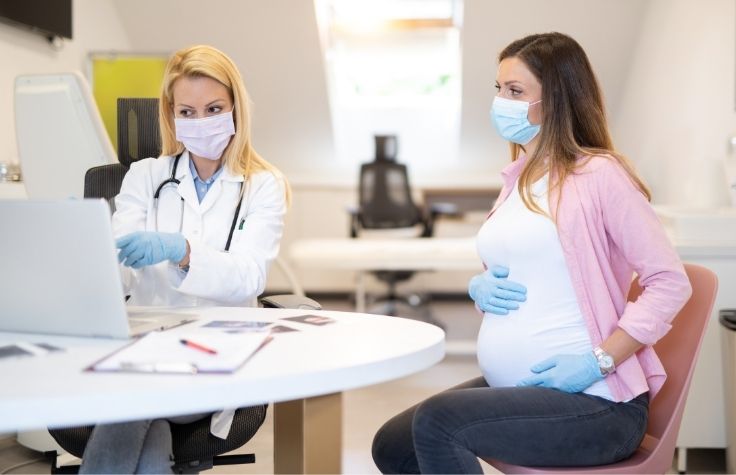
10 September 2020
Researchers at Illumina and several universities have shown that sequencing circulating RNA (C-RNA) can detect molecular signals of preeclampsia in the blood. Published in Science Translational Medicine, this proof-of-concept study is a first step towards C-RNA diagnostics for preeclampsia and possibly other conditions.
“We identified changes in preeclampsia patients that were really consistent with the biology of the disease, which helps corroborate the validity of this approach,” said Suzanne Rohrback, PhD, who works on Illumina’s Assay Research team and was co-first author of the paper. “It also highlighted how we were capturing information from multiple different organ systems. For instance, we could see dysfunction in the placenta, as well as altered blood pressure regulation in the mother.”
You’re getting information from the entire body, which is why it’s so interesting as a tool to monitor the health of otherwise inaccessible organs.
A common pregnancy complication, preeclampsia occurs when the placenta receives an insufficient blood supply, and results in dangerously high blood pressure that can damage the liver, kidneys or other organs and is sometimes fatal. Clinicians diagnose it by monitoring blood pressure and protein levels in urine. However, none of these diagnostics directly measure the underlying placental distress, which leaves room for ambiguity and precludes preventative interventions.
With its deep expertise in genomic sequencing and non-invasive prenatal testing, Illumina was ideally positioned to investigate C-RNA. Because these molecules are released into the blood stream from organs throughout the body—through apoptosis (programmed cell death) and cell signaling—they offered intriguing targets.
Fiona Kaper, PhD, Illumina’s senior director of Scientific Research, and senior author on the paper, kicked off the C-RNA research program six years ago. She believed these molecules might reveal key information about placenta, mother and infant, delivering biomarkers that could identify pregnancy complications.
“C-RNA is generated by basic cellular processes,” said Sarah Munchel, PhD, Illumina senior staff scientist and co-first author on the study. “You’re getting information from the entire body, which is why it’s so interesting as a tool to monitor the health of otherwise inaccessible organs.”
The Illumina scientists collaborated with several academic researchers, including George Saade, MD, at the University of Texas, Ronald Wapner, MD, at Columbia University and Errol Norwitz, MD, PhD, at Tufts.
The team collected 113 blood samples, including 40 from women with severe, early-onset preeclampsia and 73 from women with healthy pregnancies. Aided by machine learning, adapted to clarify trends in sometimes noisy data, they identified 49 C-RNA transcripts that could identify samples from pregnancies affected by early-onset preeclampsia with high accuracy.
“This study was a proof-of-concept to show there is a stable signature of this disease in the blood,” said Munchel. “We looked at the time of diagnosis, so symptoms were already manifesting. But this could have a huge impact if we can look earlier in pregnancy, in the first trimester, and identify women at increased risk of developing pregnancy complications such as preeclampsia.”
While the researchers started with preeclampsia, that may be just the beginning. Analyzing C-RNA from different organs could help diagnose many conditions.


